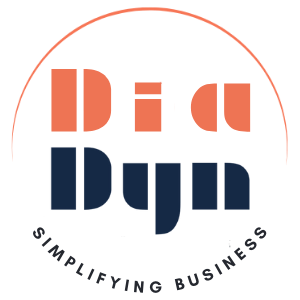
In an era of digital transformation, billing software is evolving rapidly, becoming a cornerstone for businesses seeking efficiency, accuracy, and customer satisfaction. For small and medium-sized businesses (SMBs) especially in accounting, retail, healthcare, and technology staying ahead of billing software trends is essential to drive growth and remain competitive. At Diadyn Technology, we’re at the forefront of these changes, and in 2025, we’re unveiling the top trends shaping the future of billing software. Dive in to discover how these innovations can transform your billing processes and propel your business forward.
Top 7 Trends Shaping the Future of Billing Software in 2025
1. Cloud-Based Billing Dominance
Cloud-based billing software continues to lead the market, offering scalability, accessibility, and cost-effectiveness. In 2025, businesses are moving toward cloud solutions that provide real-time data access, automatic updates, and seamless integrations with other tools. This trend is particularly valuable for SMBs, enabling Diadyn Technology’s clients to manage billing from anywhere, whether in retail stores, healthcare clinics, or accounting offices.
2. AI and Machine Learning Integration
Artificial Intelligence (AI) and Machine Learning (ML) are revolutionizing billing software, automating complex processes and predicting customer behaviors. In 2025, AI-driven billing tools can analyze usage patterns, optimize pricing, and detect errors, improving accuracy and customer satisfaction.
Trend Insight: AI algorithms are expected to predict customer churn with up to 90% accuracy, helping SMBs retain clients proactively, a key focus for subscription-based businesses in 2025.
3. Automation for Efficiency
Billing automation is becoming standard, handling tasks like invoice generation, payment reminders, and reconciliation with minimal human intervention. In 2025, advanced automation reduces errors, speeds up processes, and frees up resources for strategic tasks. For healthcare providers, this means faster claims processing; for manufacturing, it ensures timely supplier payments.
Trend Insight: Automation tools in billing software are enabling businesses to set up custom systems that operate for years without manual input, as highlighted in recent tech analyses.
4. Mobile-Based Billing Solutions
Mobile billing apps are gaining traction, allowing businesses and customers to manage invoices on the go. In 2025, SMBs in hospitality, retail, and education can use mobile apps for real-time billing, payment collection, and customer support, enhancing flexibility and customer engagement.
Trend Insight: The mobile-based billing segment is expected to grow at a faster rate than web-based solutions, driven by the rising demand for on-the-go management, as per market forecasts.
5. Enhanced Security and Compliance
With cyber risks on the rise, billing software in 2025 incorporates advanced security features like blockchain, data encryption, and multi-factor authentication. For industries like healthcare and financial services, compliance with regulations (e.g., GDPR, HIPAA) is critical, and secure billing solutions ensure data protection and trust.
Trend Insight: Security is a top priority, with billing software adopting blockchain for transparency and encryption to safeguard sensitive financial data, as noted in recent industry reports.
6. Usage-Based and Subscription Billing Models
Billing software is adapting to flexible models like usage-based and subscription billing, catering to diverse customer needs. In 2025, retail, IT, and telecom businesses can offer tiered pricing, metered usage, or hybrid plans, improving cash flow predictability and customer satisfaction. Diadyn Technology’s clients benefit from integrating these models with accounting systems for seamless management.
Trend Insight: The usage-based billing software market is seeing innovation in intuitive interfaces and automated data reconciliation, driving growth at a CAGR of 11.25% from 2024 to 2032, according to market analyses.
Common Challenges and How to Overcome Them
-
Adoption Resistance: Train teams on new billing tools—Diadyn Technology offers customized support for SMBs.
-
Data Security Concerns: Choose vendors with robust security features, leveraging Diadyn’s expertise.
-
Integration Complexity: Partner with Diadyn for seamless integrations, minimizing disruptions across industries
How Diadyn Technology Prepares You for the Future
At Diadyn Technology, we empower SMBs across retail, healthcare, manufacturing, hospitality, education, and accounting to harness the future of billing software. From cloud-based solutions to AI-driven automation, our experts ensure you adopt cutting-edge tools for growth. Contact us today to explore tailored billing solutions for your industry.
Ready to transform your billing? Contact Diadyn Technology or dive into our billing software services for more insights.

